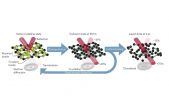Alcohol laws have a preventive effect on young men
2015-07-29
(Press-News.org) When they reach for the glass, they often know no limits: Hazardous drinking is fairly common among young Swiss men. The good news: Based on a survey of around 5,700 young Swiss men with a mean age of 20, scientists from the University of Zurich reveal that legal regulations - such as the minimum legal drinking age and restrictions on the sale or advertising of alcoholic beverages - have a preventive effect on young consumers.
Around half of the respondents are high-risk drinkers, which means they consume at least six or more alcoholic drinks in a single session every month. Almost a third of them also have alcohol problems, which manifest themselves in repeated drinking behavior with harmful consequences or risks. "Young adults and young men are most vulnerable to high-risk and abusive drinking, which can develop into an alcohol addiction," says Meichun Mohler-Kuo, a professor from the Epidemiology, Biostatistics and Prevention Institute at the University of Zurich. The high figures recorded in Switzerland tally with the results of studies from other countries.
The more cantonal regulations, the lower the consumption
The scientists studied the influence of legal preventive measures on alcohol consumption among survey respondents. The analysis revealed that fewer men drank alcohol hazardously or abusively in cantons with more preventive measures. This result also echoes international studies, which indicate that the introduction of alcohol laws led to a decrease in alcohol consumption and alcohol-related health problems.
By contrast, these preventive measures did not influence study participants with an above-average tendency towards "sensation-seeking" or antisocial behavior: Men who increasingly strive for new or exciting experiences, regardless of the risks, are more prone to risky consumption or alcohol-related problems. The same goes for men with a tendency to largely disregard laws and the concerns of others. "Evidently, it's very difficult to reach the men who are most at risk with the existing preventive measures," explains Simon Foster, a scientist at the Epidemiology, Biostatistics and Prevention Institute at the University of Zurich. In their case, personal predisposition has a greater influence on alcohol consumption than legal regulations. "This sub-group needs special preventive measures that are geared towards early detection and tailored to the personality profiles of the men affected," concludes Foster.
INFORMATION:
Literature:
Simon Foster, Leonhard Held, Natalia Estévez, Gerhard Gmel, and Meichun Mohler-Kuo. Liberal alcohol legislation: Does it amplify the effects among Swiss men of person-related risk factors on heavy alcohol use? Addiction. July 29, 2015. doi:10.1111/add.13032
Definition of terms
High-risk consumption:
Consumption of six or more standard drinks in a single session, at least once a month.
Alcohol problems:
Alcohol problems include alcohol abuse and alcohol dependence. Alcohol abuse manifests itself in repeated drinking behavior, which carries harmful consequences or risks - such as drink-driving or alcohol consumption that has a negative impact on school or work. Alcohol dependence is the physical and/or psychological dependency on alcohol. In young men, alcohol problems are primarily evident in the form of alcohol abuse.
Study
Around 5,700 men with a mean age of 20 participated in the study. The survey is part of the national "Cohort Study on Substance Use Risk Factors" (C-SURF) conducted by the Epidemiology, Biostatistics and Prevention Institute at the University of Zurich and Lausanne University Hospital (CHUV).
The aim of C-SURF is to identify the use of various substances in young men and monitor it in the longer term. The project examines the men's socio-occupational and family background, their lifestyle and personality, their consumption of alcohol, tobacco, cannabis and other substances, their gambling and internet habits, their sexuality, their physical and psychological health, and their knowledge of health-related aspects.
Contacts:
Dr. Simon Foster
Epidemiology, Biostatistics
and Prevention Institute
University of Zurich
Tel.: +41 44 634 46 22
E-mail: simon.foster@.uzh.ch
Prof. Dr. Meichun Mohler-Kuo
Epidemiology, Biostatistics
and Prevention Institute
University of Zurich
Tel.: +41 44 634 46 37
E-mail: meichun.mohler-kuo@uzh.ch
ELSE PRESS RELEASES FROM THIS DATE:
2015-07-29
A promising agent for the treatment of cancer has so far had little effect on the most common lung tumours, but new research from The University of Manchester has suggested how this resistance might be overcome.
In two papers released in the journal PNAS, the research team examined factors which mean that the most common type of lung cancer - itself the most common cause of cancer deaths - is resistant to a cytokine called TRAIL that causes cell death in many other types of tumour.
The researchers found that in non-small cell lung cancer, which accounts for around 85 ...
2015-07-29
Mice that have a particular brain chemical switched off become hyperactive and sleep for just 65 per cent of their normal time.
This discovery, published in the journal Neuron, could help researchers to develop new drugs that promote better sleep, or control hyperactivity in people with the medical condition mania.
Scientists altered the neurochemistry of mice to help investigate why we need to sleep, what controls our wakefulness, and how a balance between these two states influences brain functions like concentration and memory and our general health.
The chemicals ...
2015-07-29
From slight sparrows to preening peacocks to soaring falcons, birds have long been known to possess distinct abilities in their sense of smell, but little has been known about the evolution of olfaction.
Now, a large comparative genomic study of the olfactory genes tied to a bird's sense of smell has revealed important differences that correlate with their ecological niches and specific behaviors.
Authors Agostinho Antunes et al., in a new study published in the advanced online edition of Molecular Biology and Evolution, analyzed olfactory receptor genes (OR gene ...
2015-07-29
Physicists at the University of York have revealed a new understanding of nucleosynthesis in stars, providing insight into the role massive stars play in the evolution of the Milky Way and the origins of the Solar System.
Radioactive aluminium (aluminium-26, or Al26) is an element that emits gamma radiation through its decay enabling astronomers to image its location in our galaxy. Studying how Al26 is created in massive stars, scientists have distinguished between previously conflicting assumptions about its rate of production by nuclear fusion.
Funded by the Science ...
2015-07-29
University of Adelaide research has shown for the first time that, despite not having a nervous system, plants use signals normally associated with animals when they encounter stress.
Published today in the journal Nature Communications, the researchers at the Australian Research Council (ARC) Centre of Excellence in Plant Energy Biology reported how plants respond to their environment with a similar combination of chemical and electrical responses to animals, but through machinery that is specific to plants.
"We've known for a long-time that the animal neurotransmitter ...
2015-07-28
Bari, Italy, July 28, 2015 -- A new study by researchers at the University of Bari Aldo Moro, Bari, Italy, Geriatric Unit & Laboratory of Gerontology and Geriatrics, IRCCS "Casa Sollievo della Sofferenza", San Giovanni Rotondo, Foggia, Italy, and Istituto Superiore di Sanità (ISS), Roma, Italy, estimates the association between change or constant habits in coffee consumption and the incidence of mild cognitive impairment (MCI), evaluating 1,445 individuals recruited from 5,632 subjects, aged 65-84 year old, from the Italian Longitudinal Study on Aging (ILSA), a population-based ...
2015-07-28
Rewritable CDs, DVDs and Blu-Ray discs owe their existence to phase-change materials, those materials that change their internal order when heated and whose structures can be switched back and forth between their crystalline and amorphous phases. Phase-change materials have even more exciting applications on the horizon, but our limited ability to precisely control their phase changes is a hurdle to the development of new technology.
One of the most popular and useful phase-change materials is GST, which consists of germanium, antimony, and tellurium. This material is ...
2015-07-28
Hercules, CA -- July 28, 2015 -- Droplet Digital PCR (ddPCR™) has been shown to be a useful tool for the identification of microRNAs (miRNA) circulating in the blood that could serve as potential cancer biomarkers. A study in the journal Oncotarget further supports these findings and identifies a novel miRNA that shows great potential for breast cancer diagnosis. These findings confirm the potential clinical utility of ddPCR technology to precisely and reliably quantify cell-free miRNAs. The study also emphasizes that sample type as well as its preparation are critical ...
2015-07-28
ANN ARBOR--Secondary students found healthier foods on more lunch menus in 2013 than in 2011, resulting in fewer nutrition disparities for small schools or those with racially diverse student bodies.
The findings by University of Michigan researchers show significant improvements made in the National School Lunch Program at public middle and high schools in 2013 after many years of meal disparities based on school size or demographics.
"While these improvements are encouraging, continued progress is needed," said Yvonne Terry-McElrath, a researcher at the U-M Institute ...
2015-07-28
Wild chimpanzees in the forests of Uganda are increasingly eating clay to supplement the minerals in their diet, according to a long-term international study published in the early version of the journal PLOS ONE. The paper led by the University of Oxford describes how the researchers observed wild chimpanzees in the Budongo forest eating and drinking from clay pits and termite mounds. The paper concludes that this change in diet may be partly due to the widespread destruction of raffia palm trees that chimps relied on for their minerals in the past. However, the main reason ...
LAST 30 PRESS RELEASES:
[Press-News.org] Alcohol laws have a preventive effect on young men

